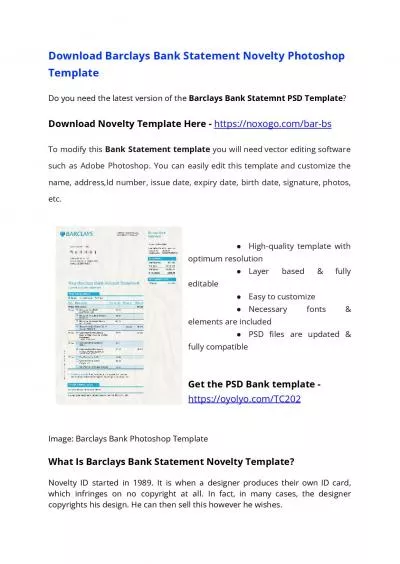PPT-The Shores Mission Statement
Author : trish-goza | Published Date : 2018-03-16
To provide a safe nurturing and loving environment for our clients to heal from addiction We will treat all phases of the disease using the most current medical
Presentation Embed Code
Download Presentation
Download Presentation The PPT/PDF document "The Shores Mission Statement" is the property of its rightful owner. Permission is granted to download and print the materials on this website for personal, non-commercial use only, and to display it on your personal computer provided you do not modify the materials and that you retain all copyright notices contained in the materials. By downloading content from our website, you accept the terms of this agreement.
The Shores Mission Statement: Transcript
Download Rules Of Document
"The Shores Mission Statement"The content belongs to its owner. You may download and print it for personal use, without modification, and keep all copyright notices. By downloading, you agree to these terms.
Related Documents














